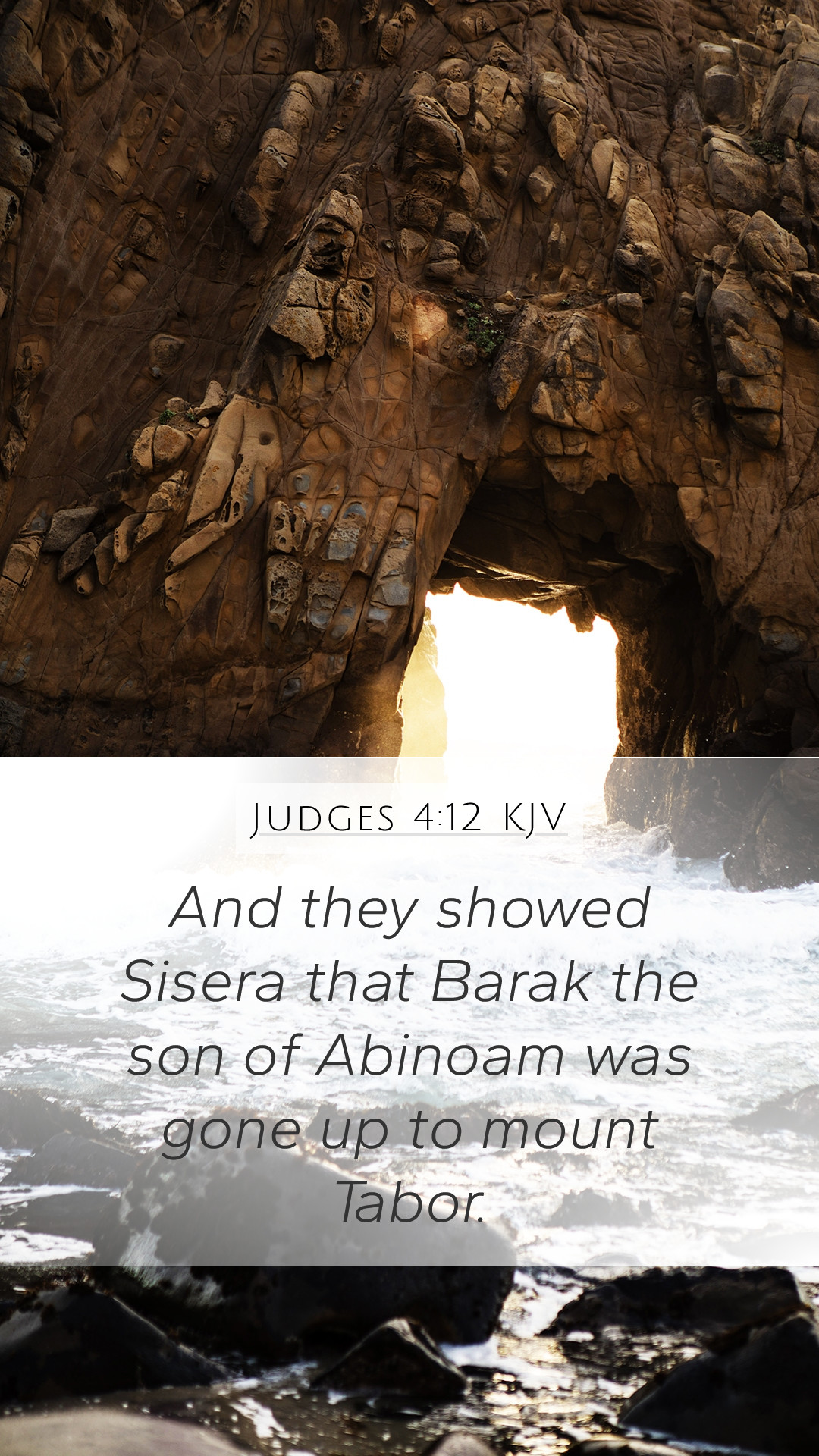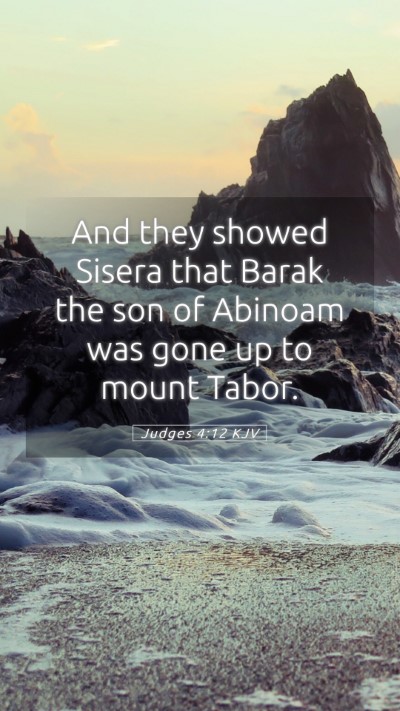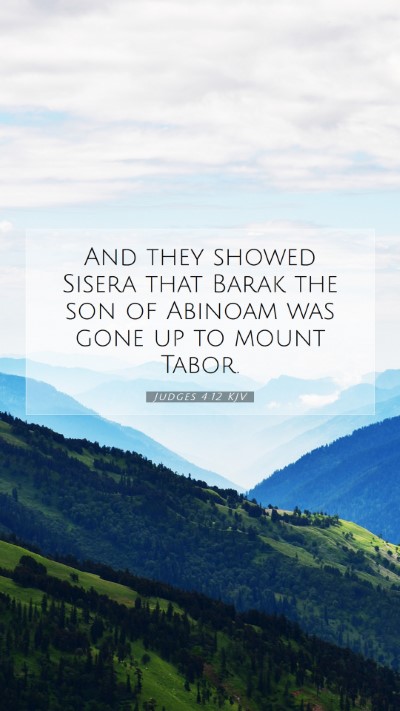Old Testament
Genesis Exodus Leviticus Numbers Deuteronomy Joshua Judges Ruth 1 Samuel 2 Samuel 1 Kings 2 Kings 1 Chronicles 2 Chronicles Ezra Nehemiah Esther Job Psalms Proverbs Ecclesiastes Song of Solomon Isaiah Jeremiah Lamentations Ezekiel Daniel Hosea Joel Amos Obadiah Jonah Micah Nahum Habakkuk Zephaniah Haggai Zechariah MalachiJudges 4:12 Meaning
What is the meaning of Judges 4:12?
And they showed Sisera that Barak the son of Abinoam was gone up to mount Tabor.
Judges 4:12 Bible Verse Meaning
Understanding Judges 4:12
Judges 4:12 states, "And they told Sisera that Barak the son of Abinoam had gone up to mount Tabor." This verse serves as a pivotal moment in the narrative of Deborah and Barak's military engagement against Sisera, the commander of Jabin's army. Below is a comprehensive analysis combining insights from public domain commentaries to aid in understanding this scripture.
Context of Judges 4:12
The Book of Judges records a period in Israel's history characterized by cycles of sin, oppression, repentance, and deliverance. Deborah, a prophetess and judge, emerges as a leader during this tumultuous time. Sisera's oppression of the Israelites led to their cry for help, prompting God's deliverance through Barak.
Verse Breakdown
-
Divine Strategy:
According to Matthew Henry, the report to Sisera about Barak's move to mount Tabor illustrates God's providential guidance. The Israelites often acted under divine instructions, echoing the belief that their victories came from God's initiative, not their own.
-
Strategic Location:
Albert Barnes emphasizes the importance of the geographical location, Mount Tabor. This strategic high ground provided Barak a significant military advantage. The Israelites' movements were not merely spontaneous but were part of a larger divine strategy.
-
Surprise Element:
Adam Clarke explains that by sending word to Sisera, the Israelites sought to draw him into a trap. The audacity of Barak's approach against a formidable foe illustrates the faith he had and the role of strategic planning in achieving God's victory.
Thematic Elements
Judges 4:12 encapsulates key themes in biblical narratives:
-
Faith in Action:
This verse is emblematic of the faith exhibited by Barak. He responded to God's directive despite the overwhelming power of Sisera's army, teaching modern readers about the importance of trusting God's plans.
-
Leadership:
Deborah's role as a female leader and prophetess is crucial. The dynamics of leadership displayed, especially when a woman leads men in battle, challenge traditional perspectives and highlight God's inclusive call for service.
-
Divine Intervention:
Ultimately, this passage reminds readers of God's sovereignty in using human agents to fulfill His purposes. The events in Judges illustrate God's active role in Israel's history, impacting their conduct and outcomes.
Application for Today
The insights from Judges 4:12 can prompt reflective questions for modern believers:
- How can we identify and act upon God's call in our lives?
- What does effective leadership look like in our communities today?
- In what ways do we experience God's providence in our struggles?
Cross References
- Judges 4:1-10: The broader context of Deborah's leadership.
- Judges 5: The Song of Deborah, celebrating the victory over Sisera.
- 1 Samuel 12:9: Reference to Israel's cycles of rebellion and deliverance.
Conclusion
Judges 4:12 serves as a testament to the interplay of divine strategy, human action, and faith in overcoming adversity. For those studying the Bible, this verse offers rich material for understanding God's involvement in historical contexts, and it provides applicable lessons for contemporary spiritual challenges.
For further exploration, consider engaging in Bible study topics related to leadership, faith, and divine intervention, using Bible study resources that encourage deep analysis and application of Scripture.


